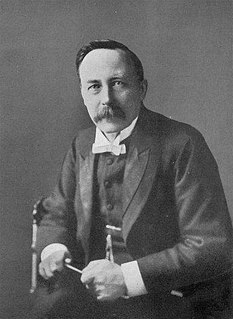A Quote by Martin Luther
Sin is essentially a departure from God.
Quote Topics
Related Quotes
For worship is, essentially, the reverse of sin. Sin began (and begins) when we succumb to the temptation, "You shall be as gods." We make ourselves the center of the universe and dethrone God. By contrast, worship is giving God his true worth; it is acknowledging Him to be the Lord of all things, and the Lord of everything in our lives. He is, indeed, the Most High God!
God has decided the rules of life, whereby you don't trespass on anybody else's rights, and sin is something that upsets the balance of things. There are three types of sin: sin against yourself; sin against other people; and sin against God. People often sin against themselves and others and misbehave with God, too.
What is sin? It is the glory of God not honored. The holiness of God not reverenced. The greatness of God not admired. The power of God not praised. The truth of God not sought. The wisdom of God not esteemed. The beauty of God not treasured. The goodness of God not savored. The faithfulness of God not trusted. The commandments of God not obeyed. The justice of God not respected. The wrath of God not feared. The grace of God not cherished. The presence of God not prized. The person of God not loved. That is sin.
Faith stands or falls on the truth that the future with God is more satisfying than the one promised by sin. Where this truth is embraced and God is cherished above all, the power of sin is broken. The power of sin is the power of deceit. Sin has power through promising a false future. In temptation sin comes to us and says: "The future with God on his narrow way is hard and unhappy, but the way I promise is pleasant and satisfying." The power of sin is in the power of this lie.
In the dominant Western religious system, the love of God is essentially the same as the belief in God, in God’s existence, God’s justice, God’s love. The love of God is essentially a thought experience. In the Eastern religions and in mysticism, the love of God is an intense feeling experience of oneness, inseparably linked with the expression of this love in every act of living.
Sin is: before God, or with the conception of God, in despair not to will to be oneself, or in despair to will to be oneself. Thus sin is intensified weakness or intensified defiance: sin is the intensification of despair. The emphasis is on before God, or with a conception of God; it is the conception of God that makes sin dialectically, ethically, and religiously what lawyers call 'aggravated' despair.








































